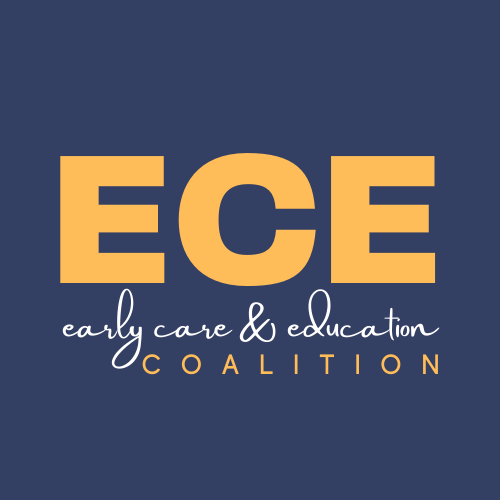
First 5 Advocacy Day 2023
First 5 LA is committed to strengthening early childhood and family supports so that all children in Los Angeles County can reach their full developmental potential in the most critical years before a child turns 5. During the first five years of life, 90 percent of brain development occurs and one million neural connections form every single second. Due to the rapid pace of growth that occurs during this time, we have the greatest opportunity to support a child’s optimal development, and with that, long-term health, well-being and success. With the strong support of First 5 LA’s new Chair LA County Supervisor Holly J. Mitchell, First 5 LA will continue to be an enthusiastic partner to communities, fellow advocates and policymakers — all to build a brighter and more equitable future for California’s youngest children and their families.
Though the last three years have wrought unseen challenges to all family-serving systems, they also inspired creative policies and practices that allowed families to stay afloat, and, in some cases, fare better than they would have had state policymakers not responded so urgently, effectively and with such flexibility.
It was these innovative policies that helped children and families furthest from opportunity weather the tumult of the past few years. Now, more than ever, we need to build on that progress, and create family-serving systems that are responsive to diverse needs and create positive and equitable impacts for all families.
First 5 LA — along with First 5 Commissions across the state — are uplifting the following priorities at this year’s Advocacy Day to demonstrate the investments needed to protect and advance upon the progress we’ve made supporting California’s young children and their families, continue strengthening early childhood systems of support in California and ensure our most under-resourced children and families continue to have what they need to succeed, thrive, and be well.
For more on First 5 LA’s 2023 Policy Agenda, click here.
For our press release announcing First 5 Advocacy Day, click here.
To learn more about this year’s First 5 Advocacy Day priorities, click here to read an op-ed from First 5 LA Chief Government Affairs Officer Charna Widby.

 THE EARLY CARE AND EDUCATION (ECE) COALITION 2023-2024 BUDGET AND LEGISLATIVE ASKS
THE EARLY CARE AND EDUCATION (ECE) COALITION 2023-2024 BUDGET AND LEGISLATIVE ASKS
First 5 LA, in partnership with the ECE Coalition — a group of 35 diverse organizations including First 5 LA — is advocating that the 2023-2024 state budget include the following priorities for early learning supports:
|
BUDGET ASK: RATE REFORM & CHILD CARE SPACES: 1) A twenty-five percent increase to current rates for immediate relief and adopting a cost estimation model that includes a timeline for implementation for the actual cost of care based on program enrollment without charging families fees |
Why First 5 LA and the ECE Coalition are advocating for this:
–
- Under current law, California has two reimbursement rate systems for child care providers: the Standard Reimbursement Rate (SRR) and Regional Market Rate (RMR). Both rate systems have serious flaws.
-
- The SRR was an arbitrary number set over 40 years ago that has not kept pace with our changing system or the cost of doing business.
- The RMR is based upon local information, and the survey’s design perpetuates inequalities, with communities furthest from opportunity receiving artificially low reimbursement rates that don’t cover the cost of care.
-
- Over the years, the state has also added many new requirements to center-based programs without reviewing or rethinking how we pay our early education providers. Additionally, the state has been inconsistent in providing programs a cost-of-living adjustment (COLA) and there is no policy or fiscal benefit to having two bifurcated rate systems. .
- In 2021 the California budget required the Department of Social Services to convene the Rate and Quality Workgroup to make recommendations to the legislature and the administration about shifting from our current bifurcated and inequitable rate system to a new single reimbursement rate system for all providers based upon a cost estimation model. First 5 LA and the ECE Coalition support the Rate and Quality Workgroup recommendations with the addition of shifting to an enrollment-based system without charging families fees.
. - Traditionally, California provides contracts to Alternative Payment (AP) agencies in October, and usually those spaces are filled by January of the following year. However, this past year the state delayed contract awarding contracts to AP agencies. While agencies knew how many spaces they were receiving, they could not enroll children until December 2022. First 5 LA and the ECE Coalition are calling on policymakers to release without delay the 20,000 child care spaces currently scheduled for next fiscal year. Families need care now.
-
- More broadly, California cannot grow its economy, especially facing a budget deficit and potential recession, without providing parents with an ability to work. California’s early learning strategy is a direct and critical component of its economic development strategy.
-
|
LEGISLATIVE ASK: SUPPORT AB 596 (REYES)/SB 380 (LIMÓN) AB 596 and SB 380 – two versions of the same bill introduced in each chamber of the Legislature – provide a legislative vehicle to move forward comprehensive rate reform in California and with a specific timeline necessary to meet the urgency of this moment. |
Why First 5 LA and the ECE Coalition are advocating for this:
- California’s current unaligned and complex system has kept child care inaccessible for many families, impacting not only the optimal development of young children, but also the ability of parents to work and provide for their families.
. - These bills would also suspend family fees until an equitable sliding scale is created to ensure the most under-resourced families can continue accessing services. The state has waived family fees on a temporary basis over the past three years due to the COVID-19 pandemic, but without legislative action, those will go back into effect starting in June. This is likely to drive many families away from services due to absorbent costs, with resulting disruptions in care impacting a parents’ and caregivers’ ability to work, as well as adversely affecting the learning and development of young children.
. - Further, supporting AB 596 and SB 380 would mean advancing changes that address historical racism and gender inequities. The child care industry remains one of the most underpaid and overworked fields in the nation and is predominantly sustained by Black and other women of color. To date, there are 2 million fewer women in the labor force compared to before the pandemic, with lack of child care being one of the main barriers. Moving forward the provisions outlined in these bills are the first steps to making child care a viable field for early educators and ensuring that women have the access to early learning services that enable them to work.
. - California has made critical investments in early learning in recent years, such as with the implementation of universal transitional kindergarten and authorizing the Child Care Providers United union. First 5 LA applauds Gov. Gavin Newsom and legislative leaders for prioritizing early learning, however, more is needed to address the systemic issues within the state’s early learning system which prevent working families from utilizing these services, limits their choice, and harms early educators.
. - Without adequate and comprehensive rate reform, we will continue to see young children miss out on resources critical to their optimal development.

FIRST 5 PRIORITIES RELATED TO GOV. NEWSOM’S
FISCAL YEAR 2023-24 BUDGET
|
MEDI-CAL CONTINUOUS ELIGIBILITY FOR CHILDREN UNDER 5 YEARS OLD: The 2022-2023 enacted budget committed to prioritizing $20 million in on-going funding to provide continuous Medi-Cal eligibility for children under the age of 5 years old, starting in 2025, but also said the state will assess whether to follow through on this funding. First 5 LA is advocating that the lawmakers affirm their previous commitment and utilize California’s resources to permanently provide children prenatal to 5 years old with continuous Medi-Cal eligibility. |
Why First 5 LA is advocating for this:
- The 2022-2023 enacted budget provided $20 million in on-going funding to support continuous Medi-Cal eligibility for children under the age of 5 years old, but budgetary challenges or revenue shortfalls may trigger the elimination of promised on-going funding. First 5 LA is asking lawmakers to ensure children under the age of 5 years old can receive uninterrupted access to health care coverage through Medi-Cal by affirming the commitment made in the 2022 enacted budget to permanently provide continuous Medi-Cal eligibility for young children.
. - Prior to the pandemic, children ages 5 and younger could temporarily lose access to Medi-Cal due to small changes in family income, or even simple administrative errors like missed paperwork. Over the past three years, when children did receive continuous eligibility for Medi-Cal, this almost never happened. Access to health care services through Medi-Cal help children receive upstream, prevention-oriented supports like early identification and intervention that promote optimal child development, as well as support lifelong health and well-being.
. - For a young child, losing access to care, even temporarily, can lead to missed well-child visits and other vital services at a crucial time when 90 percent of brain development takes place. Establishing continuous Medi-Cal coverage for children under 5 years old would prevent churn, which often results from procedural errors, and on average, causes children to lose access to health care for three to four months. With roughly half of California’s children enrolled in Medi-Cal, 70 percent of whom are children of color, continuous Medi-Cal coverage can promote more equitable health outcomes for children by contributing to addressing disparities in access to preventive care.
. - Supporting the commitment in last year’s state budget would allow California to continue doing something that it’s done well over the past 3 years: ensuring children under the age of 5 years old don’t lose access to health coverage through Medi-Cal simply because their family’s income changes slightly or temporarily. Fulfilling this budget commitment will also help increase stability and the seamlessness of the health care system for young children.
To learn more about the importance of continuous Medi-Cal eligibility for children under 5, click here to read a blog from First 5 LA Senior Policy Analyst Andrew Olenick and First 5 LA Policy Analyst Erika Witt.

|
CALWORKS GRANT INCREASE: California’s leaders have continued their work to build a California where no child grows up in deep poverty, a vision long championed by First 5 LA’s new Chair Holly J. Mitchell. Last year’s state budget, for example, increased maximum aid levels through CalWORKs to much more impactful levels, but only on a temporary basis. It also committed to prioritizing resources to ensure these increases would continue on an ongoing basis, subject to future budgetary decisions. First 5 LA is now asking that lawmakers affirm this commitment and raise CalWORKs Maximum Aid Payment levels to half of the federal poverty level (FPL). |
Why First 5 LA is advocating for this:
- While the state is facing a more difficult financial situation than last year and will be forced to make tough decisions, preserving and protecting key investments in California’s social safety net — such as CalWORKs financial grants — is an upstream, whole child, whole family approach that sets the stage for children to thrive by reducing economic insecurity at the household-level.
. - Last year’s enacted state budget increased maximum aid levels through CalWORKs by 21 percent for two years. It further declared that on-going increases were subject to future budget decisions. Ensuring CalWORKs grants are 50 percent of the FPL starting on October 1, 2024, as the 2022 state budget committed to prioritizing, would be a key economic tool to ensure no child in California grows up in deep poverty. Notably, 81.4 percent of CalWORKs recipients are children.
. - The experience of deep poverty is profoundly detrimental to children and leads to adverse effects on brain development, as well as a range of long-term health outcomes. While CalWORKs provides families with direct financial assistance to help alleviate the impacts of poverty, current aid levels are not sufficient to ensure that all families live above 50 percent FPL, the marker for deep poverty.
. - California must protect and advance upon policies that support the economic security of our children and families furthest from opportunity. Enhancing the maximum cash grants families can receive through CalWORKs is not only an important tool for accomplishing this, but also one that our state’s leaders have already committed to prioritizing.